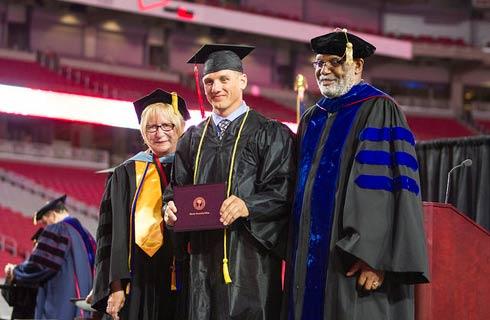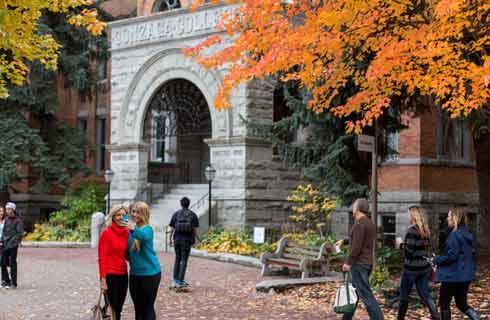第二语言习得哲学博士
Doctor of Philosophy in Second Language Acquisition

学历文凭
Ph.D.

专业院系

开学时间

课程时长

课程学费

国际学生入学条件
A U.S. bachelor’s degree from a regionally accredited college or university, or an equivalent degree from another country as determined by the Office of Admissions with a minimum grade-point average (GPA) of 3.00.
English Language Requirements:
An IELTS (International English Language Testing System) total score of 7.0, with no sub score less than 6.0.
TOEFL score requirements with score of 81 or higher on the Internet-based version of the test (iBT) and newly admitted graduate students who present iBT scores below 100 on the PBT.
TOEFL score requirements with score of 550 on Paper-based test (PBT) and newly admitted graduate students who present TOEFL scores below 600 on the PBT.
IDP—雅思考试联合主办方

雅思考试总分
7.0
- 雅思总分:7
- 托福网考总分:100
- 托福笔试总分:600
- 其他语言考试:NA
CRICOS代码:
申请截止日期: 请与IDP联系 以获取详细信息。
课程简介
Second language acquisition (SLA) is a multidisciplinary field whose goal is to understand the processes that underlie the learning of a non-native language. SLA draws from a variety of academic disciplines, among them linguistics, psychology, psycholinguistics, sociology, sociolinguistics, discourse analysis, conversation analysis, and education. All students in the SLA doctoral program take courses in SLA theory, multimedia, research methods, language learning and linguistics (see degree requirements). In addition, each student defines an area of specialization, in consultation with his or her advisor. The two broad areas of specialization are Language Learning and Post-Secondary Education, and Linguistics and Psycholinguistics. Students working in the first area are interested in issues where SLA and pedagogy converge. Some examples of areas of interest in this specialization include classroom discourse, assessment, and the acquisition of grammatical knowledge in the classroom context. Within this area students may also focus on aspects of technology and how it facilitates second language acquisition. Students in the Linguistics/Psycholinguistics specialization are interested in studying areas of formal linguistics (e.g., syntax, phonology, morphology) and / or applied linguistics issues related to their particular second language focus. Sample student projects and foci within this area of SLA include the acquisition of the syntactic structures and / or phonological features of a second language, and generative and cognitive approaches to explaining acquisition. Students working within psycholinguistics may also focus on the relationship between language processing and language acquisition.
相关申请
 预科
预科 奖学金
奖学金 实习机会
实习机会 在校学习
在校学习 跨境学习
跨境学习 校园授课-线上开始
校园授课-线上开始 在线/远程学习
在线/远程学习
开学时间&学费
学费信息仅供参考,请与IDP联系以获取详细信息
| 开学时间 | 时长 | 学费 | 地点 |
|---|
学校排名

世界排名201
数据源:
泰晤士高等教育世界大学排名
关于爱荷华大学

爱荷华大学坐落于美国中部的爱荷华州东部的一个小城——爱荷华城。爱荷华大学现有超过29000名学生,其中64%来自艾奥瓦州,21%来自周边各州。她也招收大量国际学生,分别来自109个国家和地区,占全校总人数的7%。爱荷华大学在医学、基因、水力学、语言听力,专科方面世界闻名,同时在农业医药、生物分析、生物工程、生物医学,药理学等领域有重要的创新。她在听力学、版画制作、写作、言语病理学、护理服务管理等方向有世界一流的研究生教育项目。以为代表的该校科学家是美国空间科学研究的开创者。他们设计和建造的研究设备被超过50个美国人造卫星和空间探测器使用。该校下属的医院已经连续十多年被评为美国最好的医院之一。该校的工程学院发展了世界领先的高级驾驶模拟器。同时爱荷华大学的医学专科是全世界著名的,已经连续17年被评为全美最佳医院。该校是全美最早开设精算专业的大学之一,在业界有着丰富的校友资源,仅2000年之后取得北美精算师(FSA/FCAS)头衔的该校校友已经超过百人。爱荷华大学位于爱荷华州西南的爱荷华市,紧邻爱荷华河而建,校园占地 1900 英亩,是美国重要的公立研究院校。 爱荷华大学共有 11 个院系,文理学院最大,占每年本科招生的最大比例。 亨利.B.特彼商学院、罗伊.J和露西尔.A.卡弗医学院及教育系、工程系、法律系、护理系、药剂系也都招收本科生。牙医系和公共健康系与研究生院一起,提供研究生教育。
本校相关课程
其他相关课程

法语作为第二语言的文学士学位(3年)
 劳伦森大学
劳伦森大学学历文凭
Bachelor Degree
开学日期
课程费用总额

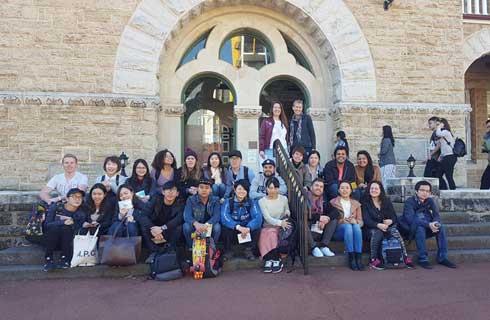
比较文学与艺术研究硕士(MRP)
 布鲁克大学
布鲁克大学学历文凭
Masters Degree
开学日期
课程费用总额


应用语言学文学士/作为后继语言的英语教学(荣誉)
 布鲁克大学
布鲁克大学学历文凭
Bachelor Degree with Honours
开学日期
课程费用总额

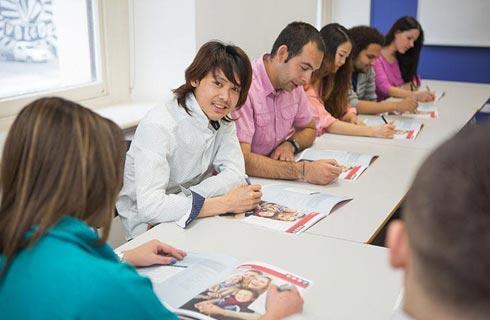
语言文学士学位
 劳瑞尔大学
劳瑞尔大学泰晤士高等教育世界大学排名:1491
学历文凭
Bachelor Degree
开学日期
课程费用总额


翻译研究哲学博士
 渥太华大学
渥太华大学泰晤士高等教育世界大学排名:188
学历文凭
Ph.D.
开学日期
课程费用总额

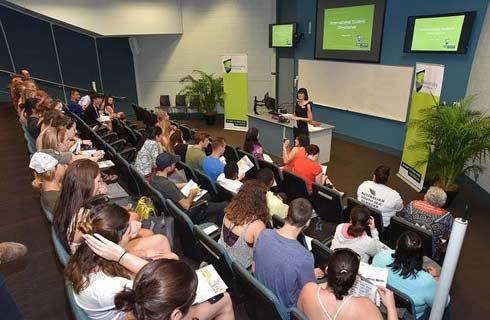
国际研究和现代语言(荣誉)社会科学学士学位
 渥太华大学
渥太华大学泰晤士高等教育世界大学排名:188
学历文凭
Bachelor Degree with Honours
开学日期
课程费用总额










 美国
美国
